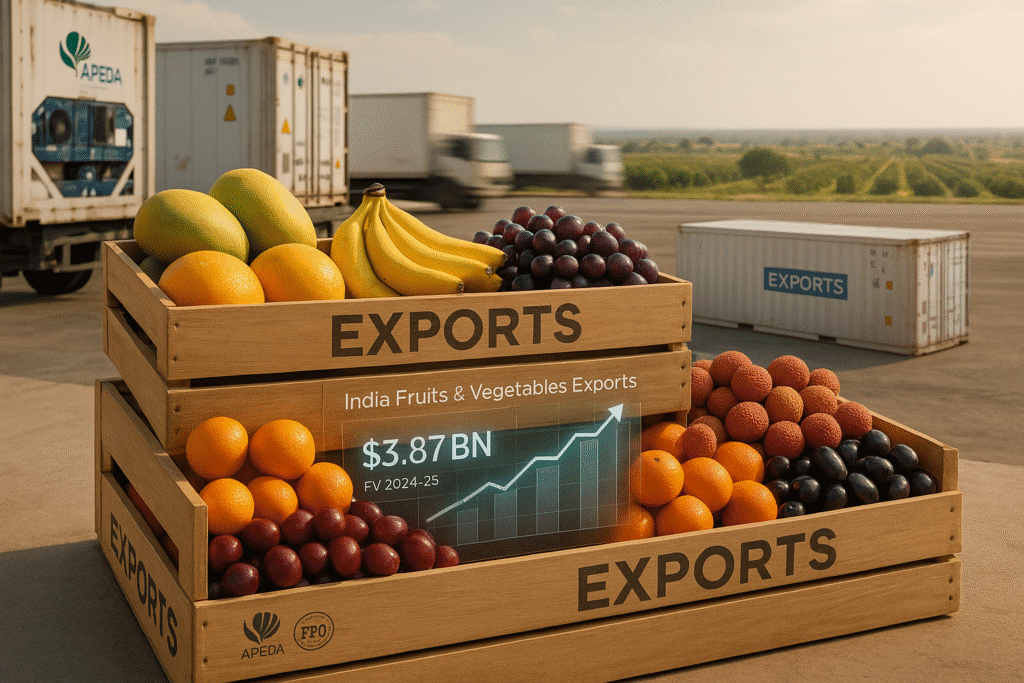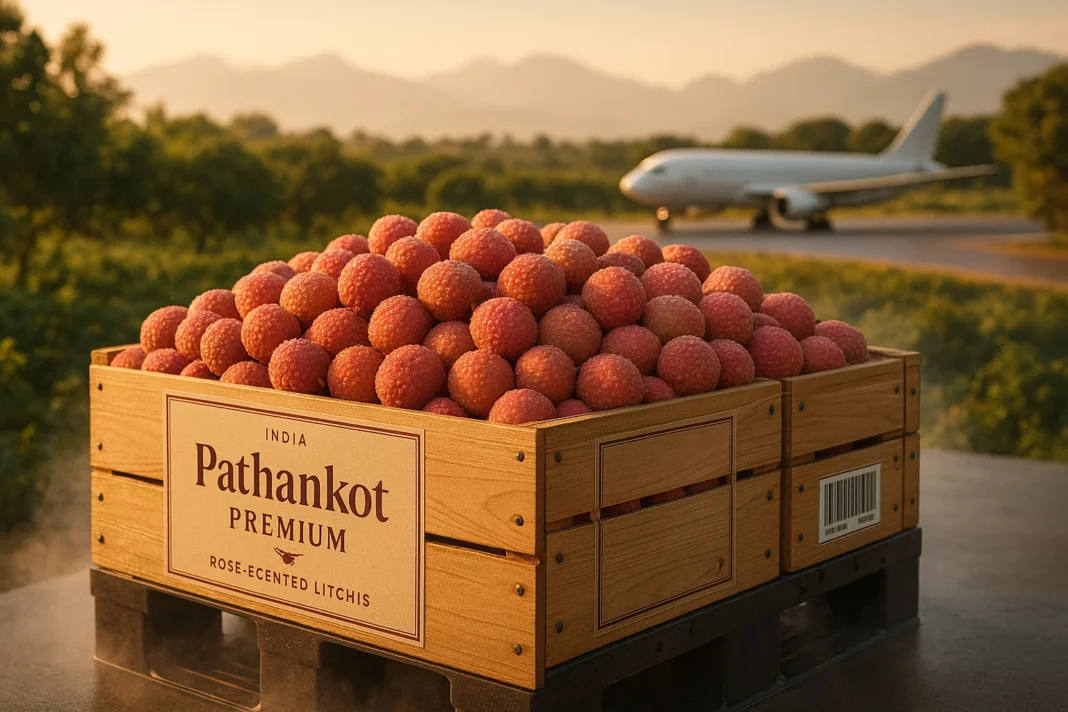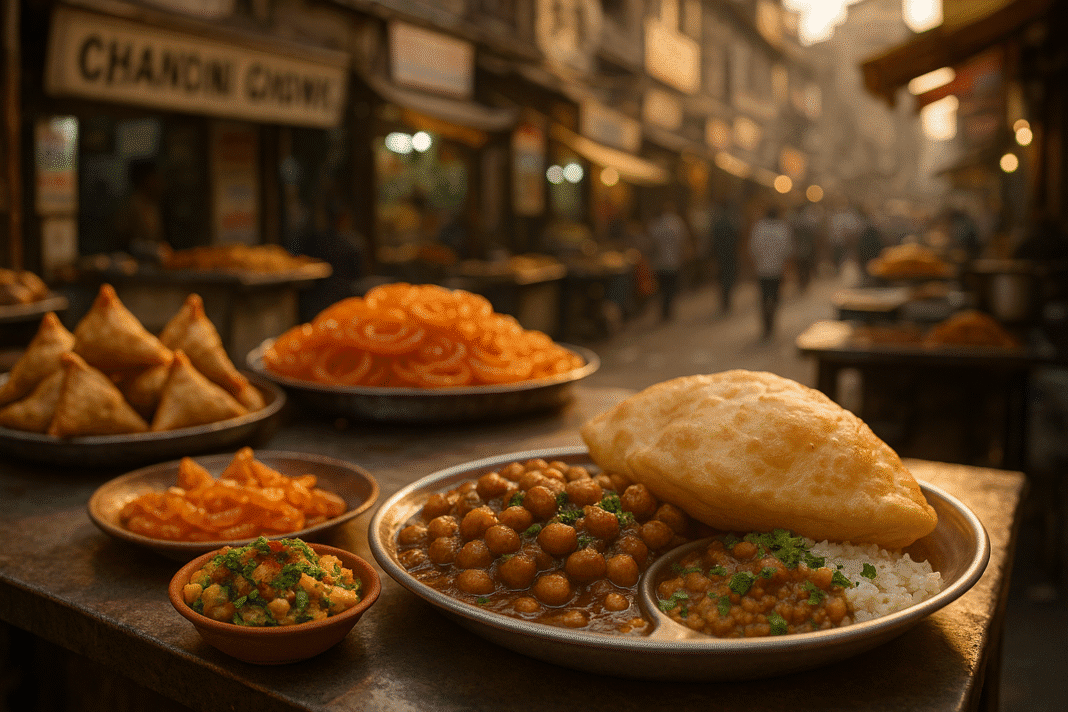Landmark APEDA Initiative Signals India’s Rising Agri-Export Leadership & Global Economic Synergies
In a trailblazing moment for India’s horticulture sector, the country flagged off its first international consignment of India’s Rose Litchi from Pathankot, Punjab to Qatar on June 23, 2025 — marking a pivotal step in India’s mission to diversify and upscale its agri-export portfolio. The 1 metric tonne shipment to Doha, facilitated by the Agricultural and Processed Food Products Export Development Authority (APEDA), opens up an untapped premium fruit export corridor to West Asia.
Adding further momentum, an additional 0.5 metric tonne of rose litchi was exported to Dubai, UAE on the same day — establishing Pathankot as a new strategic node in India’s global fruit export grid.
From Pathankot to the Gulf: A Strategic Shift in India’s Fresh Fruit Diplomacy through Rose Litchi
This path-breaking export initiative, undertaken in partnership with the Department of Horticulture, Government of Punjab, progressive farmer Shri Prabhat Singh, and retail powerhouse Lulu Group, is more than a trade event — it is a geoeconomic milestone. As global food security, sustainable sourcing, and climate-resilient supply chains become central to economic diplomacy, India’s proactive moves in horticulture exports position it as a key agrifood trade partner in the Middle East and beyond. The demand is increasing day-by-day due to its unique property and unmatched taste.
Backed by India’s robust production base — with Punjab contributing over 71,490 MT (FY 2023–24) to the nation’s rose litchi yield — the export sets the tone for unlocking value in high-margin fresh fruit exports from non-traditional regions.
Growth Signals: India’s Fruits & Vegetables Exports Hit $3.87 Billion

During FY 2024–25, India’s fruit and vegetable exports surged to USD 3.87 billion, registering a 5.67% year-on-year growth. While legacy exports like mangoes, bananas, grapes, and oranges dominate volumes, the rise of premium niche varieties like cherry, jamun, and litchi signals a shift towards value-driven export strategies.
Pathankot’s favorable agro-climatic conditions, combined with high post-harvest quality, refrigeration logistics, and market-linked farming through APEDA and FPO support, offer an export blueprint that can be replicated across India’s Tier-2 agri belts.
Why This Matters: Economic, Diplomatic & Technological Convergence
This first-of-its-kind shipment is not just a horticultural success; it intersects with India’s larger economic narrative:
- Trade diversification: Targeting non-traditional markets like Qatar aligns with India’s Middle East Look West policy.
- Farmer empowerment: Progressive farmers like Shri Prabhat Singh are turning into agri-entrepreneurs through global market access.
- Cold chain innovation: The use of reefer pallets and export-grade packaging reflects India’s growing capability in global logistics standards.
- Rural export zones: Pathankot’s emergence signals a move away from metro-dominant export ecosystems.
What’s Next? Projected Impact and Future Roadmap
This initiative is expected to:
- Open multi-million dollar opportunities in exotic fruit exports to GCC and EU nations
- Enable Punjab’s farmers to capture 10–15% premium over domestic prices
- Promote agri-startups, FPOs, and cold-chain tech startups linked to high-value exports
- Strengthen India’s commitment to doubling farmer income through export-led agriculture
Furthermore, APEDA’s roadmap includes:
- Developing traceability frameworks for exotic fruits
- Expanding cultivation under climate-resilient, export-friendly litchi variants
- Leveraging India-UAE CEPA and upcoming India-GCC free trade frameworks
India’s Agri-Export Diplomacy Finds New Ground
The Pathankot-to-Qatar rose litchi export is more than a shipment — it is a strategic statement. It exemplifies how India is transitioning from volume to value, blending rural empowerment with global economic aspirations. As countries worldwide seek reliable, high-quality food partners, India’s diversified export push, led by APEDA, places it at the heart of future global food flows. This is not just an export — it’s India’s horticultural handshake to the world.
While Qatar people will enjoy this litchis, Mumbaikars and Dehlians are enjoying their steet smart foods, have a look!




